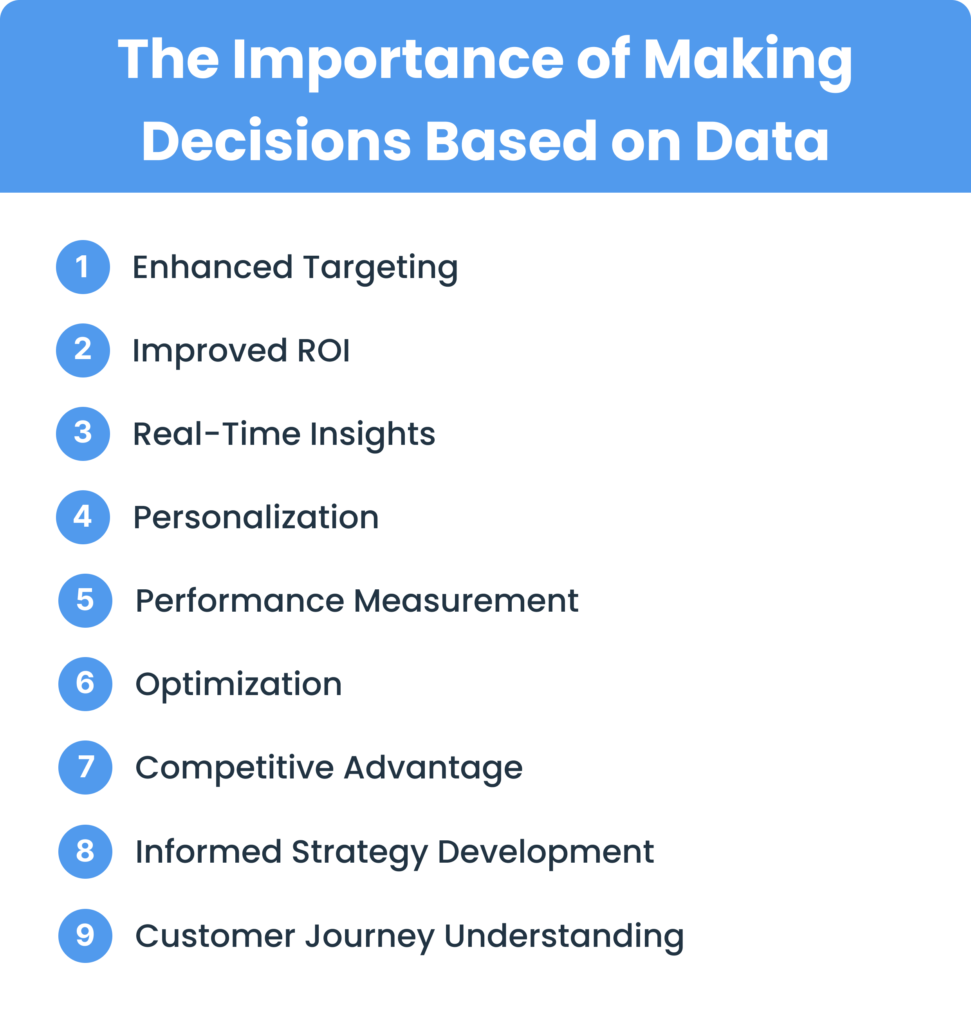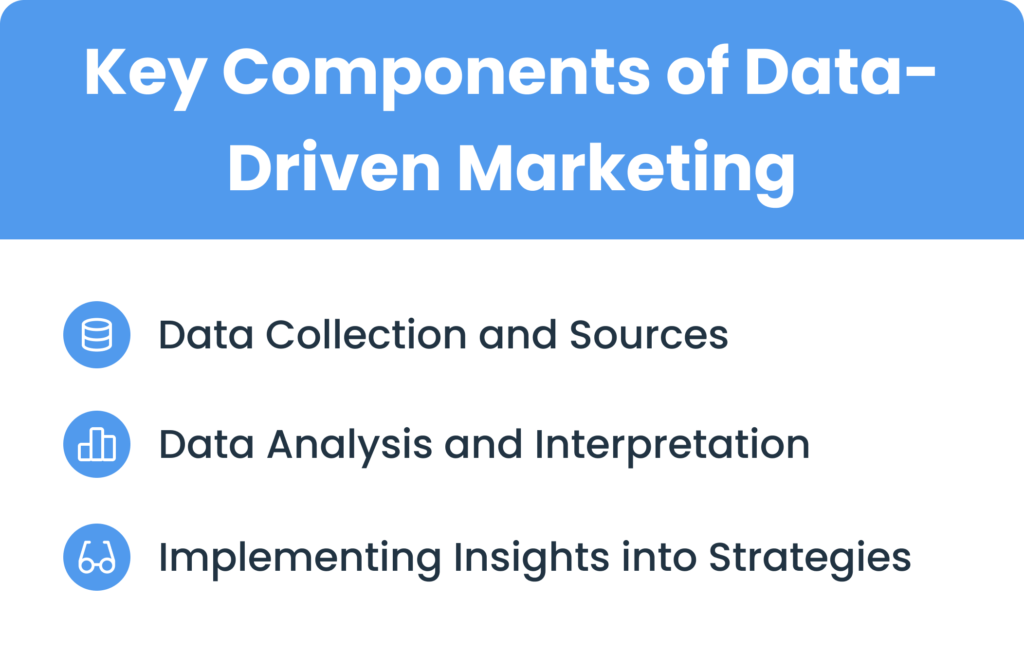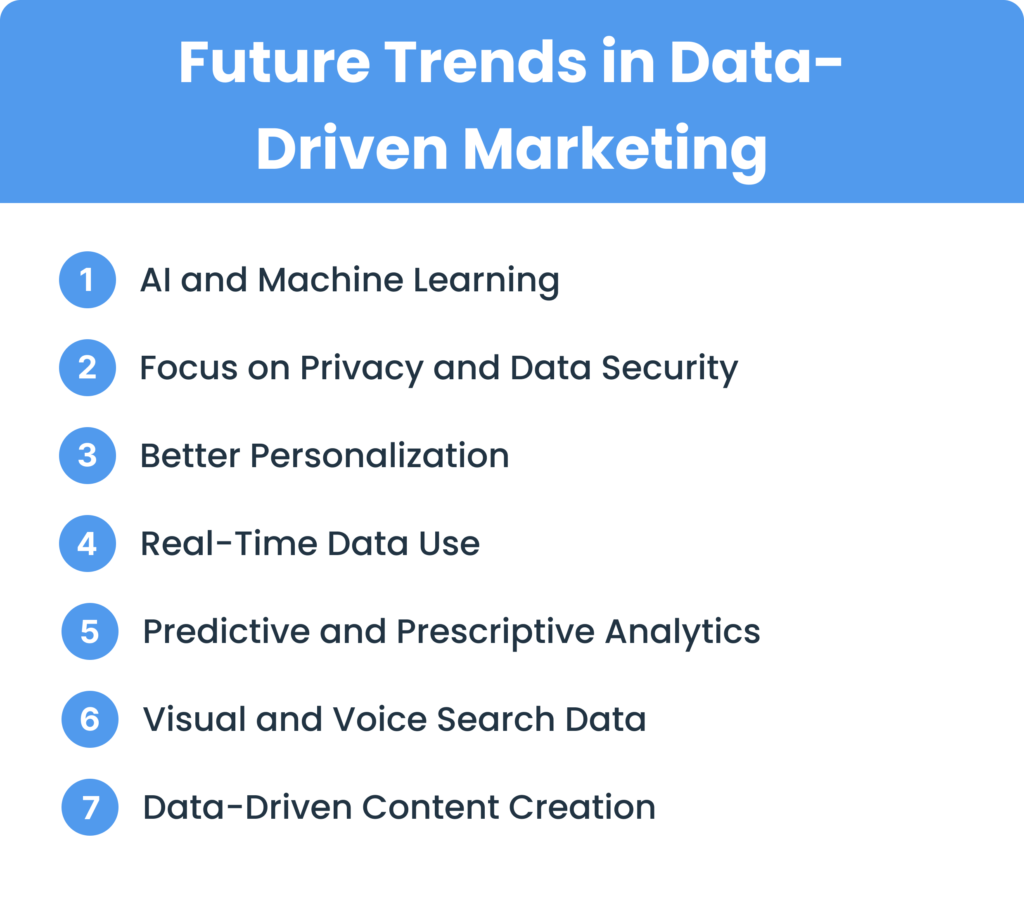Summary :
Have you ever wondered why some marketing campaigns succeed while others don’t? In today’s rapidly changing digital marketing landscape, businesses are constantly working to improve their strategies and achieve better outcomes. One of the most effective ways to enhance your marketing efforts is through data-driven decision making. Understanding the importance of data-driven decision making can significantly impact your success. But what exactly does this mean, and why is it so crucial for your marketing success?
Understanding the power of data can significantly boost your marketing effectiveness and ensure that your campaigns are strategically aligned with your business goals. In this blog, we’ll explore why adopting a data-driven approach is crucial for digital marketing success. Get ready to delve into the world of data-driven marketing and discover how to utilize its potential for exceptional results.
The Shift to a Data-Centric Marketing Era
Marketing has changed from making guesses to using data to guide decisions. Today, businesses understand the importance of data-driven decision making in improving their strategies. By using data, companies can better understand their customers, create personalized experiences, and make smarter choices. With access to information about customer behavior and preferences through digital tools, marketers can send more targeted messages and quickly adjust their plans. This approach helps make campaigns more effective and measure success more clearly.
However, handling data comes with challenges, like ensuring privacy and keeping data accurate. Even with these issues, the importance of data-driven decision making is clear. It helps businesses connect with their audience more effectively and stay competitive in the market.
Why Data-Driven Decision Making Matters?

In the fast-paced world of digital marketing, making informed decisions is crucial for success, and data-driven decision making (DDDM) is the key to achieving that. Instead of depending on outdated methods, using real data allows marketers to make choices based on solid information and insights. This approach helps avoid costly mistakes and improves accuracy in campaigns.
By analyzing data, marketers can identify important trends and insights that reveal what’s working and what’s not. This enables them to adjust their strategies, improve campaigns, and maximize their budgets. For example, data can show which ads are performing best, which channels are bringing in the most traffic, and what type of content appeals to audiences.
Data-driven decision making is essential in digital marketing because it leads to smarter choices, more efficient campaigns, and a stronger competitive position. By using data effectively, marketers can achieve better results, connect with their audience more meaningfully, and achieve success in a constantly changing digital landscape.
What is Data-Driven Decision Making?
Data-driven decision making in digital marketing means using data and analytics to guide and optimize marketing strategies and tactics. Here’s a breakdown of what it involves:
1) Collecting Data
Gathering information from various sources such as website analytics, social media, email campaigns, and customer interactions. This data includes metrics like click-through rates, conversion rates, customer demographics, and behavior patterns.
2) Analyzing Data
Examining the collected data to identify trends, patterns, and insights. This might involve using tools and techniques like statistical analysis, data visualization, and predictive modeling to understand what the data is telling you.
3) Making Decisions
Using data to make smart marketing choices means looking at the information you’ve gathered to decide what actions to take. For example, if you find out that a specific group of people likes certain kinds of content, you’ll want to create more of that type of content for them.
4) Optimizing Campaigns
Keeping your marketing efforts up-to-date, regularly changing and improving your campaigns based on the latest data and results. This can involve things like shifting where your ads appear, changing how much money you spend, and updating your content to get better results.
5) Measuring Performance
Tracking the effectiveness of marketing activities through key performance indicators (KPIs) and metrics. This helps in understanding what works well and what doesn’t, guiding future marketing efforts.
Key Components of Data-Driven Marketing
To effectively harness the power of data in your marketing efforts, focus on these key components:

1) Data Collection and Sources
Gathering information from various places to understand customer behavior and market trends.
Sources to Get Data
- Customer Interactions: Emails, social media, surveys.
- Sales Data: Purchases, e-commerce transactions.
- Website Analytics: User activity on your site.
- Social Media Metrics: Engagement and reach [ Facebook & Instagram ].
- Third-Party Sources: External data providers for additional insights
2) Data Analysis and Interpretation
Examining the collected data to find patterns and insights that help understand what’s happening and predict future trends.
How to Analyze?
- Descriptive Analysis: What’s already happened? (e.g., how many sales we made last month)
- Predictive Analysis: What might happen next? (e.g., will sales increase next quarter?)
- Prescriptive Analysis: What should we do now? (e.g., how can we improve our marketing?)
- Segmentation: Divide your data into groups to target specific types of customers.
- A/B Testing: Test two different options to see which one works better.
3) Implementing Insights into Strategies
Using the insights gained from data to shape and improve marketing strategies.
How to Implement
- Optimize Campaigns: Adjust marketing efforts based on data insights.
- Personalize Marketing: Customize messages and offers to individual preferences.
- Allocate Resources: Spend your marketing budget where it’s most effective.
- Track Performance: Monitor how well your strategies are working and make adjustments as needed.
Future Trends in Data-Driven Marketing

1) AI and Machine Learning
AI and machine learning will become key tools in marketing, helping to analyze data faster and make better predictions. They’ll allow for more personalized interactions and automated marketing tasks, making strategies smarter and more efficient.
2) Focus on Privacy and Data Security
As we use more data, keeping customer information safe will be even more crucial. Businesses will need to follow tighter rules and clearly explain how they use data to maintain customer trust.
3) Better Personalization
With advanced data analysis, marketing will become even more personalized. Marketers will use data to create tailored experiences and offers based on individual customer preferences and behaviors.
4) Real-Time Data Use
Using data instantly will be very important. Marketers will need to make quick decisions and change their plans right away based on the latest information.
5) Predictive and Prescriptive Analytics
Predictive analytics will help predict future trends, while prescriptive analytics will recommend the best actions to take. This will allow marketers to understand needs and act in advance.
6) Visual and Voice Search Data
As visual and voice search technologies become more common, data from these sources will become important. Marketers will need to optimize their content for these new search methods.
7) Data-Driven Content Creation
Data will guide content creation by showing what types of content people like and engage with. Marketers will use these insights to create more relevant and engaging content.
Conclusion
In today’s digital world, using data to make decisions is crucial for success. By analyzing data, marketers can understand what their customers want, improve their strategies, and make quick adjustments. This approach helps businesses make smarter choices, stay ahead of trends, and solve problems before they become bigger issues. Embracing data-driven marketing not only helps you connect better with your audience but also ensures your business grows and stays competitive. In short, making decisions based on data is the key to thriving in the fast-changing digital market.
Divyesh Savaliya
As an enthusiastic content writer by profession and an eager researcher, I delve into diverse subject matters to create the best SEO-optimized content pieces ready to captivate audiences







4 comments
Thanks I have recently been looking for info about this subject for a while and yours is the greatest I have discovered so far However what in regards to the bottom line Are you certain in regards to the supply
Thanks for your feedback! I’m glad you found it helpful. I always aim to share reliable info, so if you have any questions or need more details, just let me know!